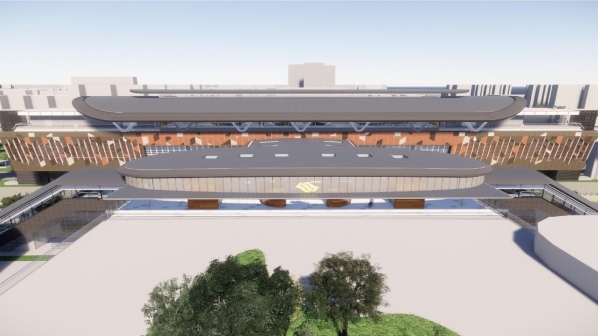Addressing the Ministry of Transport’s committee of supply debate 2020 on March 5, Khaw said this would include completing the Thomson-East Coast Line (TEL). Stage 1 of the project opened in January, with stage 2 following “within the next few months.” Stage 4 of the TEL will be completed by 2024.
The extensions to the North East Line (NEL) and Downtown Line, which will add four new stations to the network, are due to be completed by 2023 and 2024 respectively. This will be followed by the completion of the Circle Line between Harbour Front and Marina Bay.
“This final stretch (of the Circle Line) at Keppel is the most challenging to build and also the most costly,” Khaw says. “But when completed in 2025, it will significantly raise the resilience of our MRT network and the travelling experience of our commuters.”
The Jurong Region Line is due to be completed by 2028, while Phase 1 of the Cross Island Line is due to be completed by 2029.
“This will contribute towards the subsequent growth of our rail network to 360km, from the current 230km,” Khaw says. “By 2030, around 80% of Singaporeans will live within walking distance of a train station. We would have achieved or exceeded the level of train connectivity enjoyed by the residents in Hong Kong, Tokyo and New York today.”
Renewals
As well as expanding the network, Singapore also plans to complete the renewal of the North - South Line and East - West Line, as well as the Bukit Panjang LRT, by around 2023. The NEL and Sengkang Punggol LRT will also require future upgrades as well.
Khaw says the Ministry of Transport’s budget is one of the largest in government, and requires careful management, with the cost of transport shared fairly between users and taxpayers.
“That is why, amongst other things, we have a structure comprising an objective fare formula and an independent Public Transport Council,” he says. “We will continue to look for cost-cutting measures and productivity improvement solutions. We will also regularly benchmark our operators’ costs with their counterparts elsewhere.”
Accessibility
Starting at the end of the year, Singapore’s Land Transport Authority (LTA) will launch a one-year pilot for a new initiative on the NEL called Priority Cabins. Under this initiative, the two centre coaches on each NEL train will be designated as Priority Cabins for vulnerable commuters such as senior citizens, expectant mothers, wheelchair users, passengers with disabilities and reduced mobility, and parents with young children.
These coaches will be located near the platform lifts in most MRT stations, and will feature prominent visual cues and signage to encourage passengers to allow vulnerable passengers to board and alight first, give up their seats to those who need them more, and keep the wheelchair spaces free.
The pilot hopes to reduce the challenges of navigating the MRT system for vulnerable passengers, and provide them with a more comfortable ride. The project follows an initiative to introduce priority queues at transport nodes that allow individuals with special needs to board buses and trains more easily.
For detailed information on metro projects around the word, subscribe to IRJ Pro.

